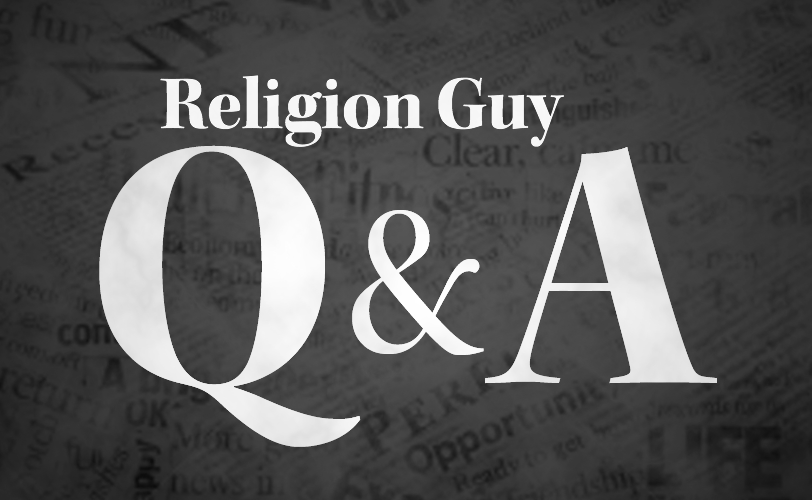THE QUESTION:
What is (and is not) “fundamentalism”?
THE RELIGION GUY’S ANSWER:
One of The Guy’s weekly memos for getreligion.org recently proposed that “fundamentalism” has become such an abused and misunderstood label that maybe we media folk should drop it altogether.
The Guy was provoked to go public with this heretical idea when The New York Times Book Review assessed a memoir of life among Jehovah’s Witnesses. The reviewer, who teaches at Harvard Divinity School, said repeatedly that Witnesses are “fundamentalists.”
Ouch (see below). If the Ivy League elite and the nation’s most influential newspaper are confused, it’s time to consider scrapping such a meaningless word.
Not so long ago, most people understood that a fundamentalist is by definition a Protestant, usually in the U.S., and a strongly tradition-minded one with a distinct flavor and fervor. Some quick history.
The term originated with “The Fundamentals,” a series of 12 booklets with 90 essays by varied thinkers from English-speaking countries that were distributed beginning in 1910. Along with standard Christian tenets, the writers defended and the authority and historical truth of the Bible over against liberal theories coming mainly from Germany.
That founding effort drew support from “mainline” Protestants, “evangelicals” and proto-“fundamentalists.” Brothers Milton and Lyman Stewart, the Union Oil millionaires who funded the project, were lay Presbyterians. The authors were reputable scholars ranging from Anglican bishops to “mainline” seminary professors to Bible college presidents. The tricky issue of the creation accounts in the Book of Genesis was not assigned to an extreme literal interpreter but respected Scottish theologian James Orr.
The budding movement was further defined by insistence on the “five points of fundamentalism,” namely the Bible’s “inerrancy” (history without error) as originally written, the truth of biblical miracles, the virgin birth of Jesus Christ, his bodily resurrection from the dead, and “vicarious” atonement through his death on the cross to save sinners.
Notably, these points were defined by predecessors of today’s rather liberal Presbyterian Church (USA). After a dispute over clergy ordinations in New York City, the General Assembly of 1910 required affirmation of the five points by clergy candidates, and reaffirmed that policy in 1916 and 1923. Harry Emerson Fosdick, famed for his 1922 sermon “Shall the Fundamentalists Win?,” quit the Presbyterians in 1925 and became a liberal Baptist.
Another landmark occurred in 1925, the “Monkey Trial” against a Tennessee teacher for presenting Darwin’s theory of evolution. This forever fused fundamentalism in the public mind with hostility to evolution (per the fictionalized 1955 play and 1960 movie “Inherit the Wind”). The teacher was prosecuted by prominent lay Presbyterian William Jennings Bryan, the Democratic Party’s three-time nominee for president and a secretary of state.
Eventually, fundamentalism came to define militants including those whose churches and agencies lost power in increasingly pluralistic “mainline” churches. They drew an ever sharper line of separation from liberal Protestants but also from more moderate conservatives or “evangelicals” of Billy Graham type, who often remained in the “mainline.” Fundamentalism also opposed evangelicalism’s Pentecostal and Charismatic wings, and was increasingly suspicious of intellectualism and pessimistic toward society.
Eventually, there was intense debate among “evangelicals” over the first of the “five points.” When founded in 1947, Fuller Theological Seminary agreed with fundamentalism in upholding the Bible as “free from all error.” This prominent school dropped that affirmation in 1972, yet continued to define itself as “evangelical.”
In 1974, Billy Graham’s International Congress on World Evangelization issued the Lausanne Covenant, drafted by Britain’s John Stott, to be a united proclamation of worldwide “evangelical” belief. It affirms the Bible’s entire truthfulness and authority “as the only written word of God, without error in all that it affirms” (leaving implicit leeway on precisely what Scripture intends to affirm on some contested matters).
To consolidate stringent conservatism, the 1978 Chicago Statement from the International Council on Biblical Inerrancy then insisted that “being wholly and verbally God-given, Scripture is without error or fault in all its teaching” concerning “God’s acts in creation, about the events of world history, and about its own literary origins. ….” Evangelicalism’s conservative wing agreed with fundamentalism on this.
The Associated Press Stylebook is accurate both in its definition of fundamentalist and its statement that the term “has to a large extent taken on pejorative connotations.” Though the religious F-word is not quite an N-word, The AP cautions media that “in general, do not use fundamentalist unless a group applies the word to itself.”
Continue reading “What is ‘fundamentalism’?”, by Richard Ostling.









